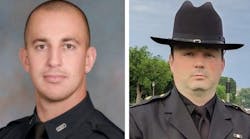The city of Seattle has agreed to pay $880,000 for the first-year costs of the independent monitor assigned to put police reforms in place, mostly for salaries and benefits of the monitor, Merrick Bobb, and his team.
The payments will cover a period between Nov. 1 and Oct. 31 of next year, including $45,000 to pay a polling firm to gauge opinions and attitudes in the community and within the Police Department regarding various policing issues.
"The 2013 poll results will be the baselines to which we can assess future progress and opinions of the Department," Bobb wrote in a budget plan the city provided to The Seattle Times on Wednesday under a public-disclosure request.
Bobb was appointed last month by U.S. District Judge James Robart in Seattle to oversee a settlement agreement between the city and the Department of Justice, which calls for far-reaching changes to curtail excessive force by officers and address biased policing. Bobb is the president of Police Assessment Resource Center (PARC), a nonprofit in Los Angeles.
He and four members of PARC's staff will be paid $400,000 in the first year of monitoring, which ultimately could last up to five years under the settlement. Future costs will be determined later.
Nine consultants on the monitoring team will be paid $305,000, including $35,000 to the deputy monitor, Peter Ehrlichman, a prominent Seattle attorney.
Others on the team include Patrick Gannon, a former deputy chief in the Los Angeles Police Department who was recently named chief of the Los Angeles Airport Police Department. He will be paid $75,000 for 75 days of work.
Among the other costs is $130,000 for travel and expenses, accommodations and equipment and supplies.
At a court hearing Wednesday to discuss the status of the settlement agreement, Robart said based on what he knew of monitoring costs of agreements in other cities, Seattle was neither paying for an expensive foreign car or a cheap one but was getting a "nice solid American car" in the middle of the cost range.
Bobb, who appeared at the hearing, introduced members of his staff and commented on the first-year budget.
"I think it's fair and reasonable in all respects," he said of the costs.
Bobb said one of his first major tasks will be to develop a monitoring plan by early next year.
He said his team plans to collect data and information at police precincts and see how it can be translated to address excessive force and biased policing on the street.
Mayor Mike McGinn and Police Chief John Diaz initially opposed Bobb's appointment on the grounds a board member of his nonprofit helped write last year's Justice Department report that led to the settlement agreement in July.
After Seattle's ethics chief found no conflict of interest, the City Council forced the issue, voting 8-to-1 to join with the Justice Department in recommending Bobb for the post.
McGinn reluctantly went along while expressing concerns about Bobb's ability to be an impartial monitor who would have support in the Police Department.
Ehrlichman said Wednesday that Seattle police officials have since been cooperative and expressed their willingness to move forward.
Robart called Wednesday's hearing the first in series of court proceedings to discuss the progress of the settlement agreement.
"There will be active case management in this case," he said.
He said he will rely on Bobb's expertise as the "eyes and ears" of the court. But he noted that, in his role as the judge overseeing the agreement, he will be ultimate authority to determine if the city is complying with the agreement.
If there is resistance, Robart added, he will be "actively involved" in making sure that doesn't happen.
Robart said the burden was not only on the Police Department. The "other 50 percent of this process" falls on the community to report crime and act as partners with the police, he said.
Both need to forge a new partnership, listening to each other and working together, the judge said.
Meanwhile, the city said Wednesday it is continuing to work with the Justice Department to produce a broad array of new information sought by federal attorneys, including records related to the fatal shooting by police of a 77-year-old man and three other incidents in which officers used force.
Information from Seattle Times archives is included in this story.
Copyright 2012 - The Seattle Times
McClatchy-Tribune News Service


